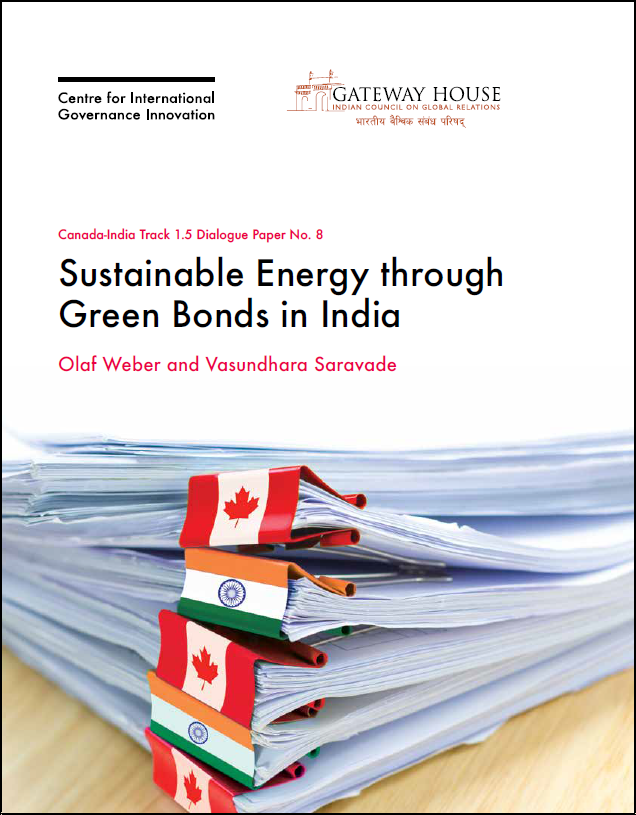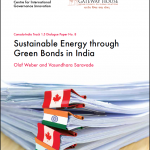This paper is part of the India-Canada Track 1.5 Dialogue.
India-Canada Track 1.5 Dialogue on Innovation, Growth and Prosperity is a collaboration between Gateway House: Indian Council on Global Relations and the Centre for International Governance Innovation (CIGI).
The India-Canada Track 1.5 Dialogue works jointly on multilateral issues and identifies areas where improved cooperation could benefit both countries. To address these challenges, the papers produced under this partnership will help to develop policy recommendations to promote innovation and navigate shared governance issues that are integral to the continued growth of Canada-India bilateral relations.

This paper is part of the India-Canada Track 1.5 Dialogue. View the first, second and third part of this four-part paper series.
Executive Summary
Emerging economies, such as India, will need significant international investment in climate action in order to transition toward a future that is low-carbon and climate-resilient. India needs fossil fuels at an affordable price and needs to protect itself against price fluctuations. It can meet these needs by investing in Canadian oil companies, given the country’s political stability and rule of law. As an emerging economy, India could attract greater foreign direct investment into its economy through green bonds, a climate finance debt instrument that addresses environmental and climate-related challenges. Not only are green bond issuances linearly increasing over the years, but they also seem to be driven by institutional pressure, provided in part by the Securities and Exchange Board of India’s regulation, as well as by the informal advocacy efforts of market stakeholders. These findings are consistent with institutional theory and contribute to it by introducing the regulatory perspective of the green bond market.
You can download the PDF version of this paper here.
Olaf Weber is Senior Fellow, Centre for International Governance Innovation (CIGI), Canada & University of Waterloo Research Chair in Sustainable Finance, Professor & Associate Director of Graduate Studies.
Vasundhara Saravade is Research Assistant, University of Waterloo.
This paper was exclusively written for Gateway House: Indian Council on Global Relations. You can read more exclusive content here.
For interview requests with the author, or for permission to republish, please contact outreach@gatewayhouse.in.
© Copyright 2020 Gateway House: Indian Council on Global Relations. All rights reserved. Any unauthorized copying or reproduction is strictly prohibited.


